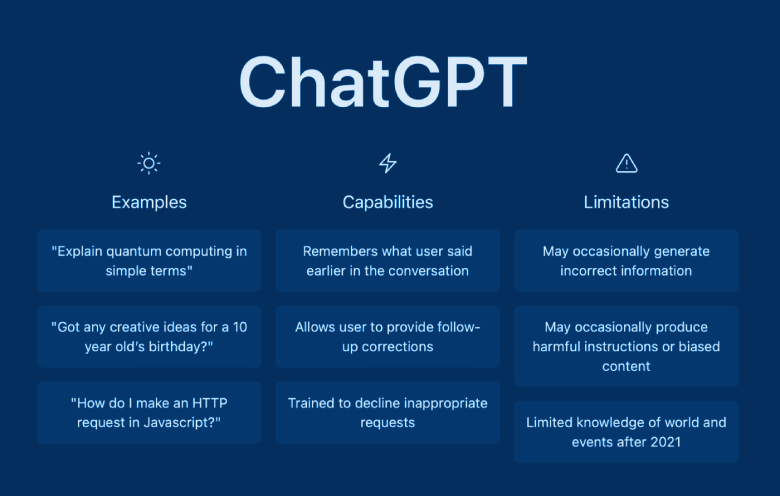


Economic Development’s official assumption is that the incoming artificial intelligence revolution is only likely to affect Guernsey’s “back-office operations” and “more mundane jobs” in the short term.
Questions were raised during question time in the States Assembly yesterday, with Deputy Sam Haskins asking E&I President, Deputy Neil Inder, what Economic Development are doing “to capitalise” on the economic growth potential of AI.
Deputy Inder rephrased the question to say that the “risks” of AI “are not necessarily in Guernsey, because in Guernsey ultimately there's a lot of sales and business development”.
Deputy Andrea Dudley-Owen then pressed further: “I wonder whether the President feels that the risk actually could be more acute for Guernsey with the increase in reliance on AI, considering that a lot of the finance sector does actually outsource its work to jurisdictions which they deem are cheaper to provide labour than then they can find within Guernsey?”
But Deputy Inder again said that “the risk to Guernsey as [Economic Development] understands it, is more for the back-office work. So not necessarily an initial risk to Guernsey”.

Pictured: Deputy Neil Inder does not expect a big labour adjustment in the short term.
Economic Development member, and skills-lead, Deputy Sasha Kazantseva-Miller highlighted that AI is actively being considered by the Committee and industry alike.
She said: “There's a number of initiatives the Committee is undertaking. Through the Digital Greenhouse there has been ongoing education and workshops, seminars, and in fact, just recently, a course on generative AI has been opened for applications."
She added that the finance industry is “constantly looking at innovative solutions, and AI will be part of them”.
Deputy Inder agreed that public-private partnerships and industry are rolling out programmes locally to identify and enhance digital skills.
“But the point still remains that the threat mainly, as we understand it, is likely to be at the more mundane processes of our finance industry, which aren't always in Guernsey,” he added.

Pictured: Deputy Sasha Kazantseva-Miller is responsible for skills within Economic Development.
However, reports and research globally point to a major upheaval in jobs and a sea change in how modern work is performed by emerging generative technologies and associated plugins, including the now famous ChatGPT.
Penn State University recently published initial research on the labour market effects of these products – known as large language models (LLM) – with contributions from OpenAI, which developed ChatGPT, and OpenResearch.
OpenAI launched the fourth iteration of its product a few weeks ago with a monthly subscription fee.
Here’s what large language models are, and what the new developments mean, in GPT-4’s own words.
“Large language models are advanced artificial intelligence systems designed to process and understand human language. These models can perform a variety of tasks such as answering questions, creating written content, and translating languages,” it said.
“Developed using machine learning techniques, large language models are ‘trained’ on massive datasets containing text from diverse sources, such as books, websites, and articles. By analysing this data, the models learn patterns, relationships, and structures within the text, enabling them to generate human-like responses.”
On GPT-4, it said: “It is a state-of-the-art AI system that builds upon the success of its predecessor, GPT-3. While both models excel in various natural language processing tasks, GPT-4 incorporates several key improvements.”
It can process more data accurately, in a broader way, with wider and up-to-date datasets.

Pictured: ChatGPT has only been publicly available for little over half a year.
Penn State’s research found that up to 50% of workers could see half, or more than half, of their daily tasks involve LLMs.
Some industries are far more exposed than others, which in the research is defined as the share of a given occupation’s tasks that could be completed at least 50% faster than just a human.
This does not mean those roles will become fully automated but does indicate significant efficiencies could be realised within them amidst a wider productivity boom.
Writers, mathematicians, proofreaders, tax officials, financial and data analysts, web designers, blockchain engineers, PR specialists, accountants, interpreters, survey researchers, and legal secretaries had the highest exposure.
Low paid and physical jobs are the least likely to be affected. This includes hard labourers, construction, agriculture, gardening, engineering, hospitality, and infrastructure maintenance.
Goldman Sachs has identified that competition is likely to increase in jobs which are made more efficient by LLMs, which will drive wages down. The investment firm also said that employment could reduce in the short-term if properly implemented by organisations, but longer-term predictions are difficult to make.
But it's possible that living-standards and the value of goods and services will increase too.
A joint event between Guernsey Finance and the Guernsey Financial Service Commission will be held later this year discussing AI.
Comments
Comments on this story express the views of the commentator only, not Bailiwick Publishing. We are unable to guarantee the accuracy of any of those comments.